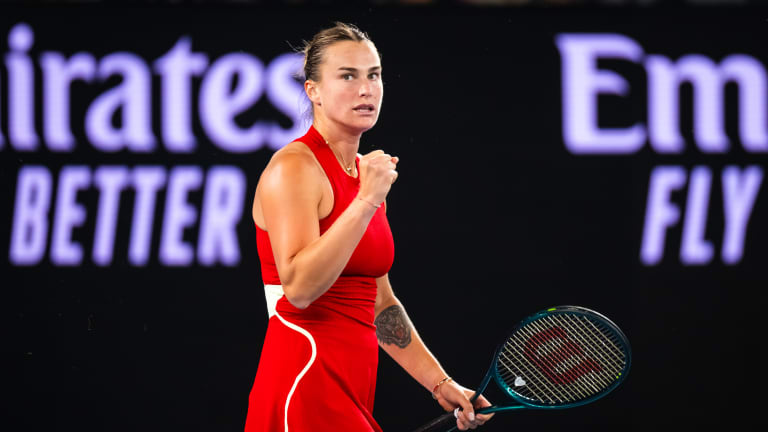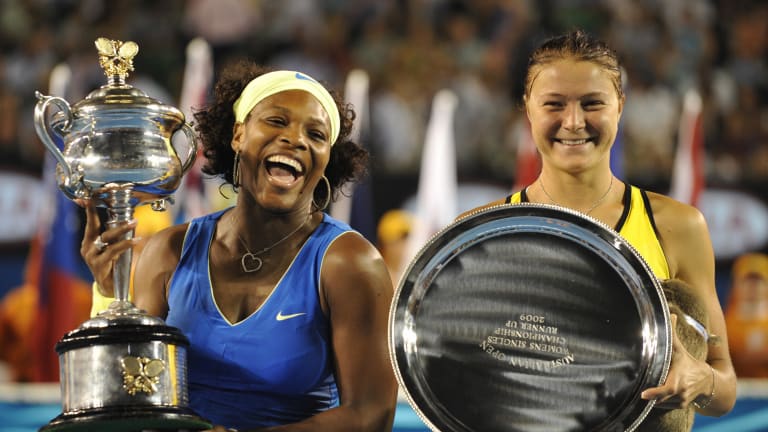Tennis.com Interview
Dinara Safina: Aryna Sabalenka is showing 'strength of character' with 2024 Australian Open run
By Jan 26, 2024Tennis.com Interview
Nick Kyrgios brings the show, and new perspective, to Madison Square Garden
By Dec 08, 2025Tennis.com Interview
After longest off-season ever, Tommy Paul talks injury comeback, wedding plans at MSG
By Dec 08, 2025Tennis.com Interview
Following in family footsteps, Elli Mandlik clinches Australian Open return in wild card play-off
By Nov 25, 2025Tennis.com Interview
Ben Johnson 101: How an Instagram auteur is defining modern tennis lifestyle
By Nov 11, 2025Tennis.com Interview
Patrick Kypson, former college teammate of Rinderknech and Vacherot, is writing his own perseverance story
By Oct 28, 2025Tennis.com Interview
Michael Zheng channels Ivy League balancing act into rapidly blossoming pro tennis future
By Oct 21, 2025Tennis.com Interview
Flavio Cobolli wants to earn Davis Cup Finals nomination—and stay on as ATP's 'admin'
By Oct 16, 2025Tennis.com Interview
With IMG Academy backing, Wakana Sonobe kicks off pro career at home in Osaka
By Oct 16, 2025Tennis.com Interview
Alex Michelsen wins Almaty debut to end losing skid, reveals coaching trial with Kristof Vliegen
By Oct 15, 2025Dinara Safina: Aryna Sabalenka is showing 'strength of character' with 2024 Australian Open run
The former world No. 1 sees a lot of herself in the No. 2 seed, who aims to win in Melbourne for a second straight year, and opens up about what kept her from returning to tennis.
Published Jan 26, 2024
Advertising

Former No.1 Safina says Sabalenka has found 'balance' over the last year since capturing a much-desired first major.
© 2024 Robert Prange
Advertising
Advertising

It's been 15 years since Safina finished runner-up to Serena Williams in Melbourne.
© AFP via Getty Images